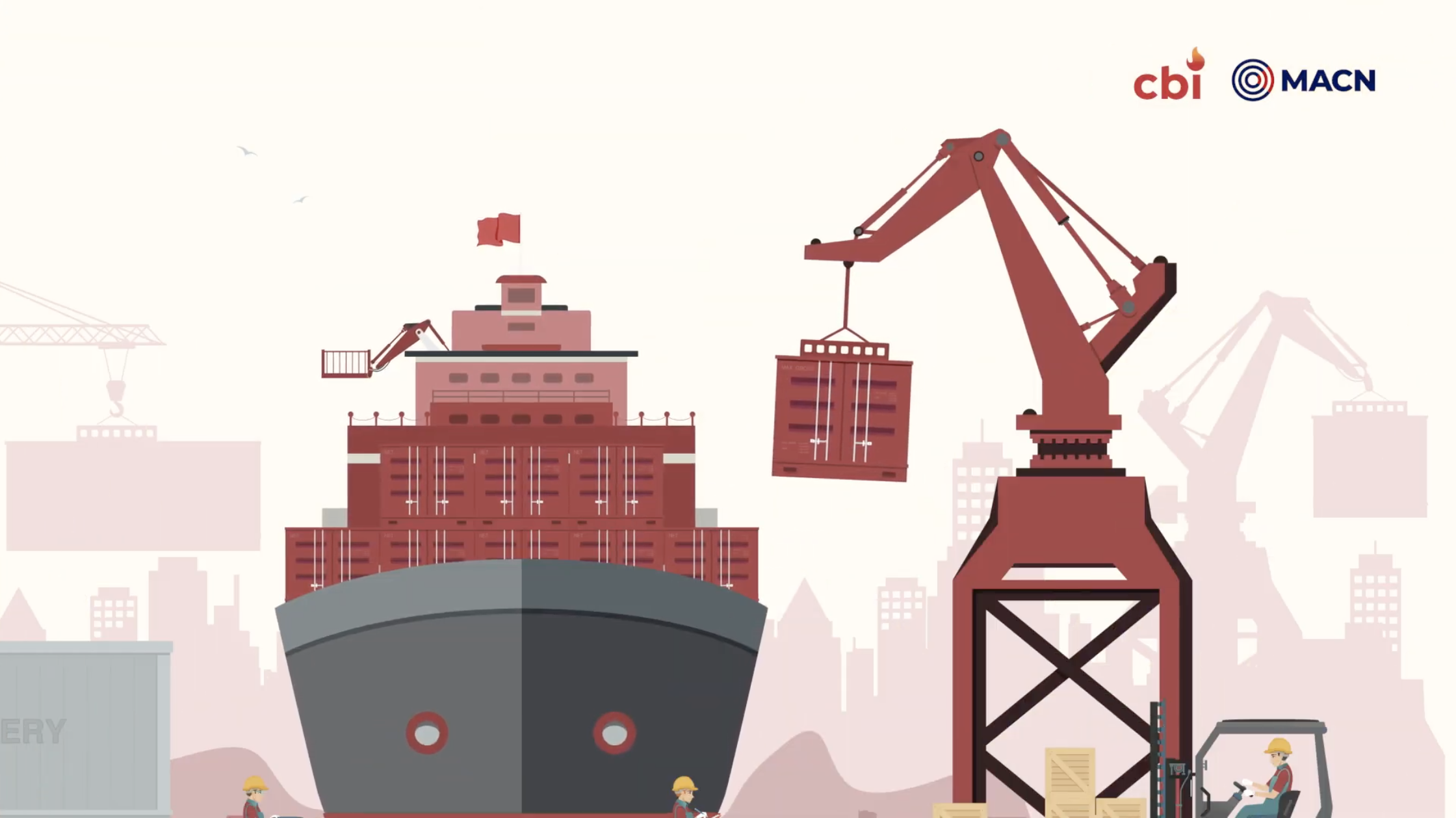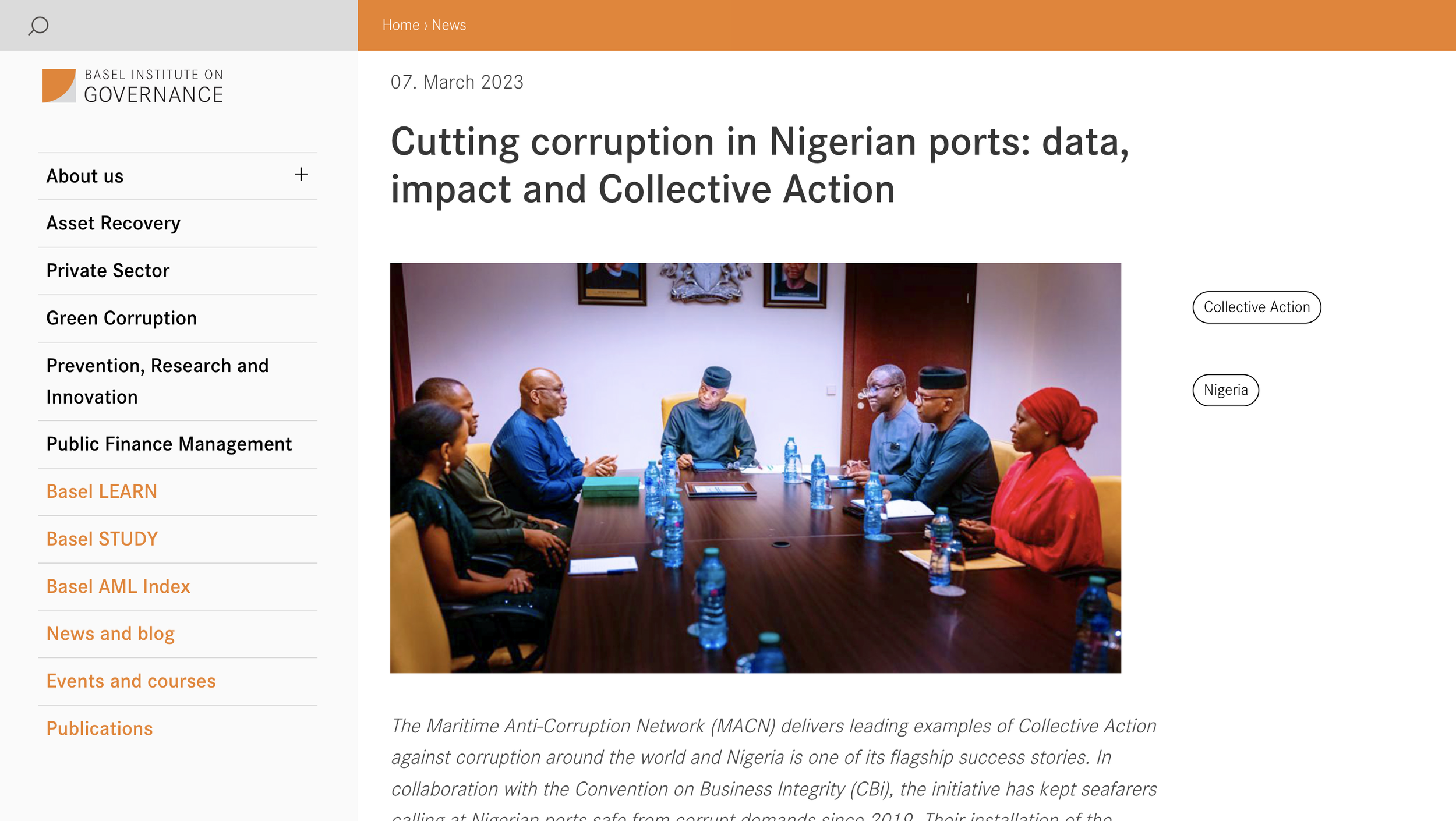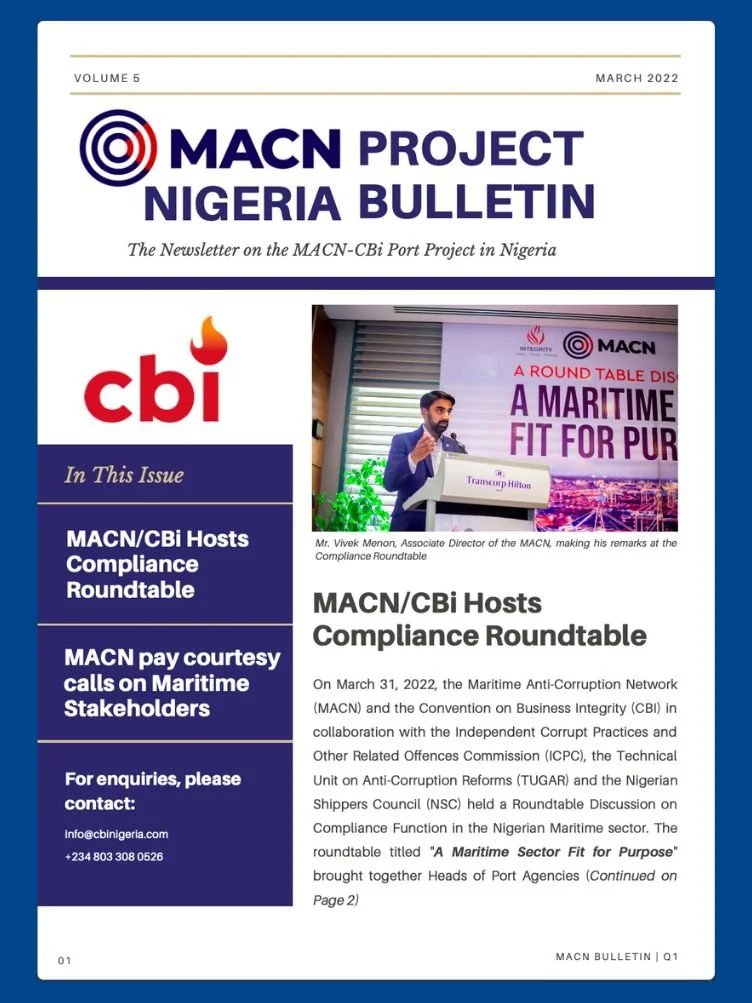
Maritime Anti-Corruption Network
Research Report on Seafarers’ Experience During Vessel Clearance in Nigeria
The National Seafarer’s Welfare Board of Nigeria report encapsulates seafarers' experiences, covering factors that enhance or degrade their experiences and the impact of improved vessel clearance in Nigerian seaports, jetties, and terminals.
ABOUT
CBi Collaboration with MACN
MACN is a global network of 190+ entities aiming to combat corruption in the maritime industry for fair trade. It was founded in 2011 and includes vessel owners, cargo owners, and service providers. MACN, a business-driven initiative, is a leading anti-corruption effort in the industry. Its Nigeria initiative received the 'Outstanding Achievement in Collective Action Award' in 2022. Funded by UNDP, Danish Shipping, DFID, DANIDA, and Siemens Integrity Initiative, it's implemented by the Convention on Business Integrity.
Products we developed
Maritime Network Tools
User Experience Diary
Tell us about your experience at the seaports and terminal.
Port Call Assist (Help Desk)
Let us know when you are arriving/departing.
SOP Toolkits
Welcome To Nigerian Maritime Standard Operating Procedures Toolkit
Compliance Training Materials
Maintain a rigorous compliance framework at your Port Agency.
Anti Corruption Policy
Read the Anti-Corruption Policy that applies to all Nigerian Port Agencies.
Nigeria Ports Integrity Index
Compare ports to aid in identifying clearance issues
CBi Maritime Course - Navigation Guide
Master the intricacies of maritime modules to excel in your field.
CBi Maritime Course - Module 1
Navigate the processes of clearing goods, and more in this course.
CBi Maritime Course - Module 2
Grasp Nigeria’s import/export processes, and more.
Basel Institute on Governance
What is Corruption in Ports and Why Does it Matter?
Table of Contents
Introduction
5 Impacts of Corruption in Ports
5 Reasons Why Companies Must Act Against Corruption in Ports
MACN & Nigeria's Efforts to Deal With Corruption in Ports
Avoiding 3 Barriers to Dealing with Corruption in Ports
5 Points to Change Nigerian Attitudes to Corruption in Ports
5 Major Things That Change How We Think About Corruption
What's-In-It For Nigerian Port Actors That Refrain From Corruption?
How to Avoid Corruption in Nigerian Ports & Terminals
MACN Success Stories in Combating Corruption in Ports
Introduction
In today’s highly interdependent world economy, business and societies depend on the efficient clearance of vessels and goods in ports worldwide to function, develop and prosper. Around 90 % of world trade is transported by sea and via ports, and any business that is part of global supply chains does to some extent rely on ports for import and export. However, seaports are in many cases, the most corrupt place in the maritime value chain.
Every day, vessels and cargos enter ports, and the processes involve numerous stakeholders across several jurisdictions, resulting in multiple interactions with government officials. This provides fertile ground for corruption where government officials in the port enjoy broad discretionary powers. See report on Operations at Nigerian Seaports and Terminals. Further, the port is an administrative monopoly over an essential public service that businesses depend on to function and prosper. This creates breeding ground for ‘coercive’ corruption where port officials extract bribes from companies for performing routine processes during e.g. vessel and cargo clearance. See report on Tackling Corruption in The Nigerian Ports.
Download the full material below
Snippets from the document
MACN-Integrity Tools
Explainer videos
Nigerian Maritime Ports Integrity Index
The Nigeria Maritime Compliance Training Handbook
Nigerian Maritime Standard Operating Proceedure Toolkit
User Experience Diary App created for Maritime Stakeholders
Helpdesk Solution to Aid Nigerian Maritime Stakeholders
Essential Integrity Tools for Transparent Trade at Nigerian Ports
Integrity Radio
Providing solutions to issues raised in Maritime
Private Sector Initiatives in Nigeria's Marine and Blue Economy Ft Captain Emmanuel Iheanacho
Coastal Erosion & Building Sustainable Coastal Communities Ft. Prince David Omaghomi
Marine Biodiversity and Conservation Ft. Dr Stella Egbe
Blue Economy Opportunities and Options for the Tinubu Administration Ft. Prof Samuel Odewunmi
Blue Economy and Sustainable Job Creation Ft. Mrs Vivian Chimezie Azubuike
Blue Economy and National Security Ft. Samuel Dayo Ebidunmi





















